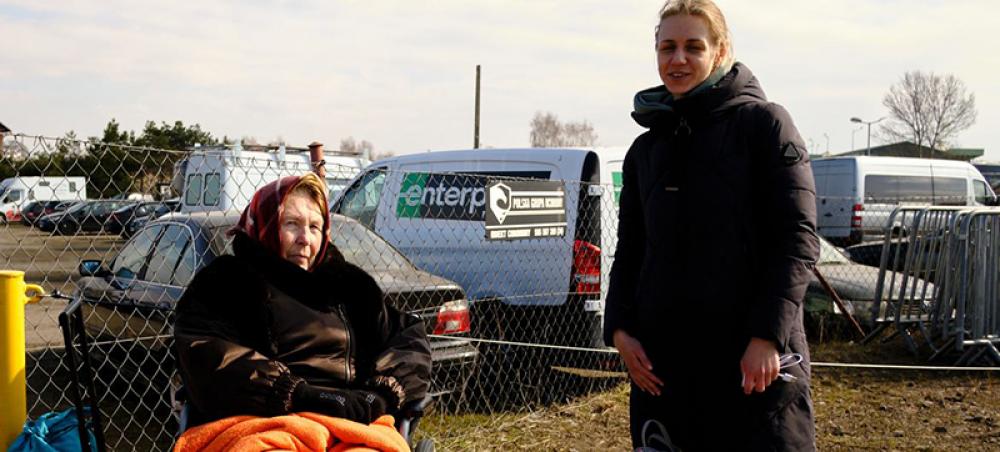Just Earth News | @justearthnews | 23 Sep 2022

Image: Daniele Aguzzoli
A new UN report reveals how the Ukraine war and its global impacts on food, energy, and finance are affecting women and girls disproportionately, both inside the country and around the world.
The policy paper developed by gender agency UN Women and the Secretary-General’s Global Crisis Response Group, describes how the war has widened gender gaps in hunger, education and poverty, and has also increased gender-based violence.
Dire situation
For example, school-aged girls are now at a higher risk of being forced out of school and into marriage, as a way for desperate families simply to make ends meet.
Women have also reduced their own food intake, so that other family members can have more, amid food price hikes and shortages.
Meanwhile, energy prices have left families with no choice but to continue using low-tech fossil fuels, exposing women and girls to household air pollution, which kills 3.2 million people each year.
UN Women also estimates that around 265,000 Ukrainian women were pregnant when the war broke out and have had to endure physical and health challenges in the past months.
Rural food insecurity
The document notes that women-headed households in Ukraine were already more food insecure before the war, with 37.5 per cent of them experiencing moderate or severe levels of food insecurity, compared to 20.5 per cent of male-headed households.
Currently, rural women in Russian occupied territories are not able to do agricultural work due to high insecurity and lack of resources. However, they are having to accommodate internally displaced people, multiplying their unpaid care and domestic work responsibilities.
Sexual violence on the rise
The report warns of an “alarming” increase in gender-based violence, transactional sex for food and survival, sexual exploitation, and trafficking, not only in Ukraine but worldwide, amid worsening living conditions.
“Systemic, gendered crises require systemic, gendered solutions. That means ensuring that women and girls, including from marginalized groups, are part of all the decision-making processes.
“That is simply the only way to be certain that their rights and needs are fully taken into account as we respond to the clear facts before us”, said Sima Bahous, UN Women Executive Director.
Recommendations
The analysis highlights that as women continue to bear different and additional burdens of war, they must be represented in all decision-making platforms on de-escalation, conflict prevention, mitigation and other processes in pursuit of peace and security for the people of Ukraine and beyond.
The report calls on the international community to promote the right to food by targeting the specific nutrition needs of women and girls and accelerating the transformation towards more equitable gender-responsive and sustainable food systems.
UN Women and the UN’s Global Crisis Response Group also recommend world leaders to ensure equal access to affordable and sustainable energy, as well as boost reporting on gender statistics and sex-disaggregated data.